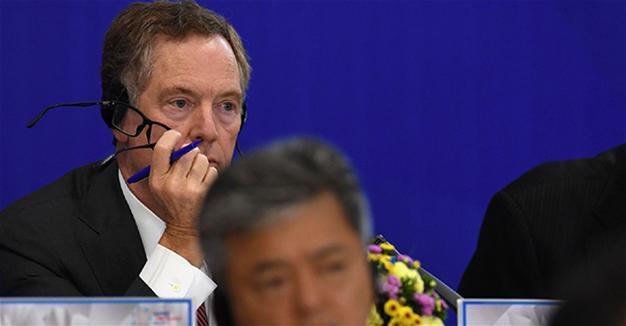TPP countries agree to keep trade deal alive despite US rejection
HANOI - Reuters
 The United States ruled out returning to the Trans-Pacific Partnership trade deal and said on May 21 it only wanted bilateral agreements in Asia, as Japan and other members agreed to more talks on pressing ahead themselves.
The United States ruled out returning to the Trans-Pacific Partnership trade deal and said on May 21 it only wanted bilateral agreements in Asia, as Japan and other members agreed to more talks on pressing ahead themselves.Turmoil over global trade negotiations was laid bare at a meeting of Asia-Pacific Cooperation (APEC) countries, which failed to agree the usual joint statement after U.S. opposition to wording on free trade and fighting protectionism.
The meeting in Hanoi, Vietnam, was the biggest global trade gathering since U.S. President Donald Trump upended the old order with his “America First” trade policy, designed to protect American jobs.
Trump withdrew from TPP in one of his first acts in office, but the 11 remaining countries agreed in Hanoi to explore how they could still move ahead - partly in the hope that the United States would reconsider leaving.
New U.S. Trade Representative Robert Lighthizer said there was no way back.
“TPP-11 can make their own decisions and the United States makes its decision, but we expect to stay engaged and I believe at some point there will be a series of bilateral agreements with partners in this part of the world,” he told a news conference.
Although the TPP members kept the trade agreement alive, they fell short of a wholehearted commitment to move ahead immediately with a deal that members also see as a way to contain an increasingly dominant China.
“Eleven countries have shown a lot of unity and a desire to move through some of the equations that will be required to look to put the agreement into force,” New Zealand Trade Minister Todd McClay, leading the discussions, told Reuters.
One of the biggest challenges is keeping on board Vietnam and Malaysia, which signed up for the deal and promised to make major reforms largely to get better U.S. market access. They now want to renegotiate some points.
The volume of trade between the remaining countries is barely a quarter of the level it would have been if the United States had remained in the TPP.
Officials from TPP countries will meet again in Japan in July and bring proposals in November, McClay said.
Fears of protectionism have grown under the Trump presidency and the gathering in Hanoi did nothing to quell them.
The Asia-Pacific countries failed to agree on their usual joint statement after the United States opposed wording that supported free trade and opposed protectionism, officials at the meetings said.
Instead, there was a statement from the Vietnamese chairman of the talks which gave a “commitment to promote trade and investment liberalization” but did not mention free trade or fighting protectionism as the grouping has in the past.
A separate statement from all members on actions to follow up after the summit did not contain such commitments either.
The wrangling is similar to what has been seen at gatherings of Group of 20 and Group of Seven financial leaders, where statements were toned down to fit with the new U.S. agenda.
















